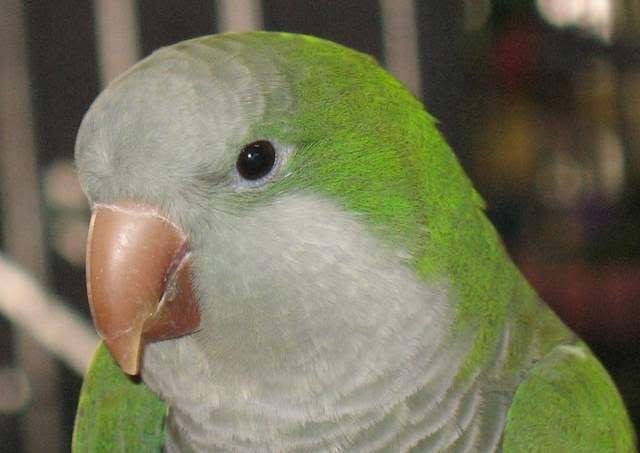
Directly quoted from the e-mail (another e-mail was also received; however, the wording seemed less confusing in this one):
"The DNR is not seeking to restrict (ban) pet ownership or sales of monk parrots, and I think you are misinformed or misunderstand the rule's language. I am not sure where you obtained your information, but you might want to read the draft rule for yourself in the attachment, if you have not done so. Pages 16-17 specifically address monk parrot status. We will be improving the draft language to make it more clear that possession and sale of them is legal. Under the staff's DRAFT rules, monk parrots will be classified as a prohibited terrestrial and aquatic vertebrate invasive species along with Russian boar, feral swine and mute swan. The draft rules state that no person may transport, possess, transfer or introduce a prohibited invasive species such as a monk parrot unless one or more of the following applies:
- the monk parrot is a legally obtained nonnative wild animal that is a pet, in which case it may be possessed, transported or transferred, but not introduced, without a permit under these rules. (Notice it is stated that animals must be legally obtained. Apparently there are many cage birds in the pet trade that are not obtained legally within the country of origin, smuggled, etc.)
- the department determines that the transportation, possession, transfer or introduction was incidental or unknowing, and was not due to the person’s failure to take reasonable precautions.
- the person has a department permit issued under the rules to transport, possess, transfer or introduce the bird for research, education, identification, control or disposal or for other purposes specified by the department in the permit.
Introducing them, or any nonnative wild animal, to the wild is currently and will continue to be illegal, and this is the critical issue. Should monk parrots become established anywhere in the state and for whatever reason, their prohibited status in the draft rule would allow for their control in the wild if necessary. Based upon the experiences of other states and countries, it seems highly probable that, should monk parrots become established in the wild in WI, there will be a variety of problems associated with them. We want to avoid that situation.
We are not trying to slip anything past the public. Six public listening session were held around the state in January, 2008 to obtain initial public response. After numerous modifications, we are now seeking Natural Resources Board approval to hold formal public hearings sometime this summer. We anticipate further modification of the rule, based upon comments from the public hearings, before seeking NRB approval. As mentioned above, it is clear that we will improve the language pertaining to monk parrot possession and transfer."

If the draft passes and becomes the actual law, it appears as though legally-obtained pet quakers will still be legal. The state is just trying to proactively find a solution in case quakers establish feral colonies here, like they have in Chicago, Barcelona, and many other cities.
However, as listening sessions are scheduled to be held over the summer, there is always the possibility that the final version may not exactly mirror the draft version. We will keep you updated as to any developments in this manner.
Thanks to those of you who contacted your representatives to let them know your views, and thanks to the DNR for providing a civil and polite response to those inquiries!
Photos: The top photo is of Missy, a quaker that spent many months here before recently finding her new home. The bottom photo is of Sam, who loves hanging out in her little house!

